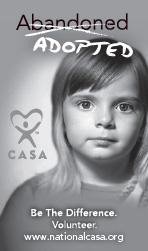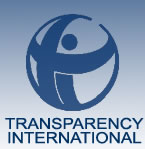 The above picture is linked to a story about the lethal lapses in the Illinois DCFS that have lead to the deaths of 53 children. However, these are the cases that make me cringe at the phrase "family preservation" and the cries of anti-adoption advocates for reunification of parents and children after removal by the "system". As Patrick T. Murphy, (1997, p.83) author of a book titled Wasted: The Plight of America's Unwanted Children states "...proponents of family preservation correctly press these issues (the adverse affects of removing a child from their family) to advance their cause. But there is another side of the coin: the nature of the parents."
The above picture is linked to a story about the lethal lapses in the Illinois DCFS that have lead to the deaths of 53 children. However, these are the cases that make me cringe at the phrase "family preservation" and the cries of anti-adoption advocates for reunification of parents and children after removal by the "system". As Patrick T. Murphy, (1997, p.83) author of a book titled Wasted: The Plight of America's Unwanted Children states "...proponents of family preservation correctly press these issues (the adverse affects of removing a child from their family) to advance their cause. But there is another side of the coin: the nature of the parents."
Murphy offers one of the most poignant illuminations of the other side of the coin:
The trauma a child will experience in breaking a bond with the parent must be balanced against the trauma the child will experience in remaining with a parent, or being returned to a parent who is simply unable to nurture a child, or, worse, uses his or her power to destroy the child....Our natural inclinations are to sympathize with the parent or parents, particularly those mired in the hopelessness of the underclass. But at some point we must consider the child, particularly since the child's time frame is entirely different from ours [emphasis added]. Family preservation has often failed because it has been pushed vigorously by conservatives who see it as a way of saving money, and by liberals who consider only the parents' discomfort. Neither conservatives nor liberals take pains to view the abuse from the child's point of view. (p.84)
Babb's book Ethics in American Adoption admonishes the fact that adoption is not professionalized and cites the fact that "...only 2 percent of master's degree level social workers who were field instructors in the discipline could identify ethical dilemmas in their case studies or based their interventions on ethical issues that had been correctly defined" (p.129). Babb concludes that "if any practice in the country merits regulation, it is adoption" (p. 191). It can be inferred that she includes the entire field of child welfare as the book pinpoints the social worker as, typically the first "professional" in social services to confront a family in trouble usually under the circumstances of child removal.
I support the creation of a specialization in child welfare, foster care and adoption. The teaching profession was not always considered a "profession" and yet took the necessary steps toward professionalization initiated by both the professionals in education and the state. Teacher preparation is standard, including an "apprentice" period and the application for certification and licensure which is dependent on the satisfactory completion of coursework, fieldwork and a state examination demonstrating competency. Our current system appears to be the epitome of what Albert Einstein defined as insanity: doing the same thing over and over again and expecting different results. How many more "lethal lapses" are needed before citizens DEMAND safeguards against the capricious decision-making of laypersons empowered as "professionals" in child welfare with the capacity to sentence children to death?









1 comment:
Here's the strange thing about IL DCFS. Instead of social workers in child welfare positions being licensed by a separate department, DCFS licenses them and dubs them "child welfare specialists". Without this separate agency, DCFS is judge, jury and executioner when it comes to individual caseworker licensure. Adding a layer of complication, the board who decides if a caseworker should lose their license is full of private agency executives.
Also, to report a bad caseworker, a PAP or foster parent has to go though many levels of bureaucracy. You can not go directly to the Child Welfare Emplloyee Licensure board. First, you have to complain to the DCFS Office of Inspector General who then bounces it off yet another set of private agency board members on the DCFS Ethics committee.
Been there, did that three times, got brushed off and told my caseworker did nothing wrong without one of these DCFS board members even bothering to get a copy of my client file. Fortunately, the IL Appellate Court disagreed with all these board members and bureaucrats.
Just for additional reading, I'm giving you the link to the Child Welfare Specialist licensure code. http://dcfswebresource.prairienet.org/rules/rules_412/homepage.phtml?page=4#P172_14226
One reason to revoke one of these DCFS issued professional licenses is "4) an egregious act that demonstrates incompetence, unfitness or blatant disregard for one's duties in providing direct child welfare services;". If anyone has read my appellate brief, I imagine they are shaking their head that the defendant is still licensed.
Post a Comment